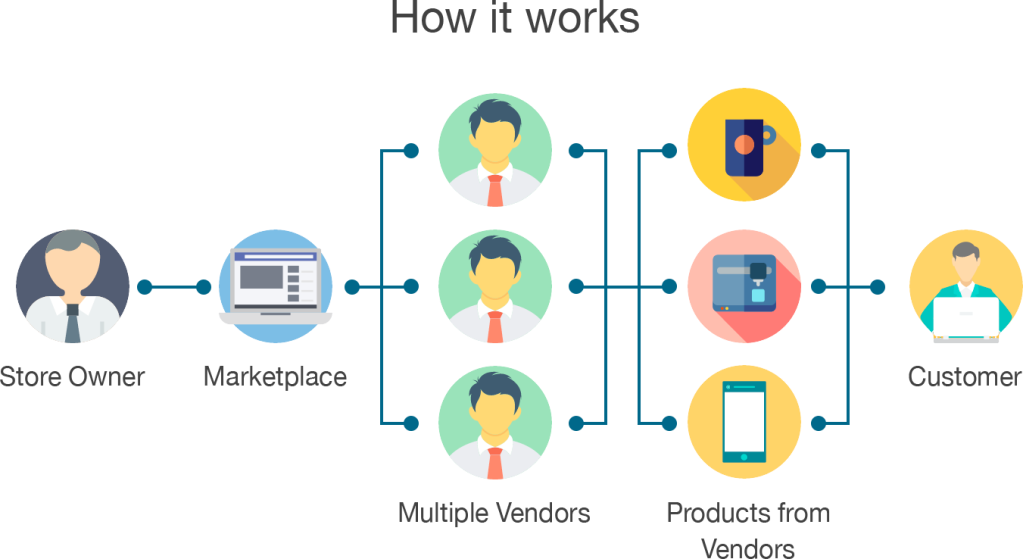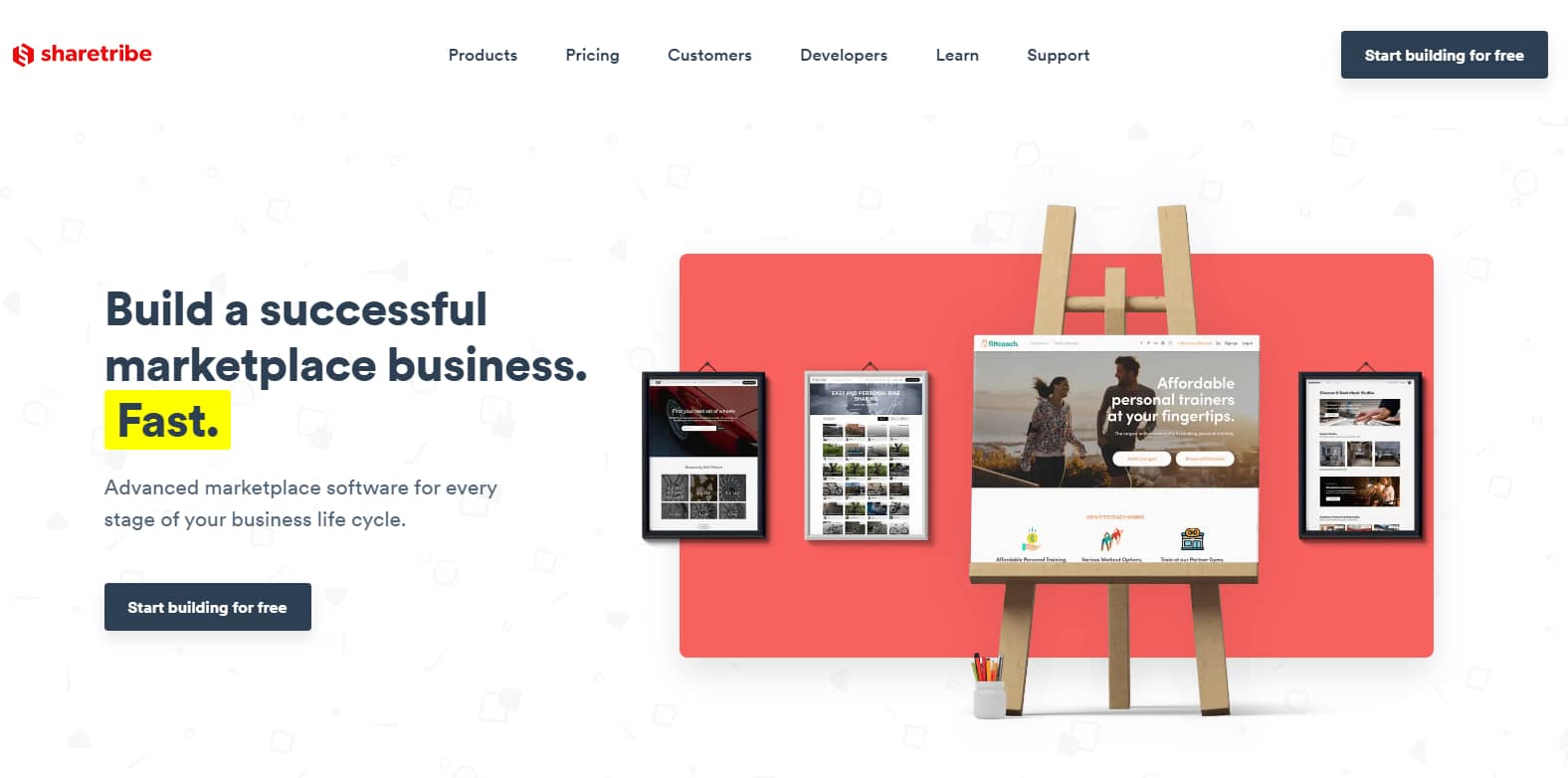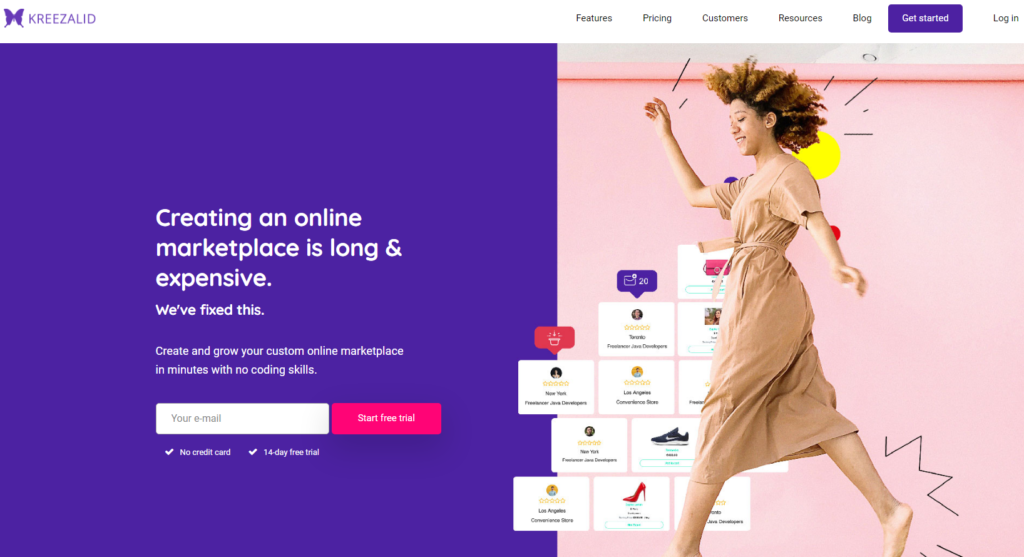In 2021, more than 392,000 third-party sellers began selling on Amazon.
Surprised? But, that is what recent reports suggests.
Now think for a moment; when you are looking for a cosmetic product, let’s say a lipstick by Bobby Brown where do you search for it? I am sure you will search for it on Amazon or Nykaa first because Bobby Brown’s official website will neither provide rocket speed delivery nor the pocket-friendly prices.
Let me share my personal experience here. So, I love this Indian brand by the name ‘Chumbak.’ I loved exploring their products so before the pandemic I used to visit the offline stores very frequently. Then COVID happened and I was left with no option but check their online store and app. I spent hours on their website and selected a few products for myself. I placed the order and was left with nothing but never ending wait and no response.
I eventually had to cancel my order and again, I was waiting for the refund – it was frustrating. Then I finally ordered the same wallet from Amazon and got it delivered within 2 days. So, why did this happen? Does it mean the brands do not care for their customers? No, its all about expertise and priorities.
So, here I am sharing my 2 major learnings with you:
- Brands and labels primarily focus on their products as they are producing it. Even if they launch their exclusive online stores, logistics and customer care would be the second priority for them.
- Multi-vendor marketplaces usually sell the products from other brands so, everything that they are responsible for is the rocket speed delivery and maximizing sales (by offering heavy discounts and other attractive offers).
No matter what brand you want to purchase, a multi-vendor marketplace like Myntra, Flipkart, Nykaa, Amazon will always offer better prices and deliver the product in the least time.
So, now we know why multi-vendor marketplaces are gaining popularity. Now, let’s understand how the right multivendor eCommerce platform can help you launch a perfect eCommerce marketplace.
Let’s start with the basics,
What is a Multivendor eCommerce Marketplace?
As the name suggests, multivendor eCommerce marketplaces are the websites where multiple sellers can sell their products from the same platform. If compared to the offline setup, its like a mall where there are separate stores for multiple brands/sellers. In the same way, on a multivendor marketplace, multiple sellers can get themselves registered and start selling their products.

Now, let’s jump to the most important question,
Which is the Best Multivendor Ecommerce Platform to build an Online Marketplace?
To help you build a future-proof multi-vendor marketplace, I have listed the best 5 standalone multivendor eCommerce platforms. These multi-vendor platforms are inherently designed to create an online marketplace and are also scalable and easy to customize. I have reviewed these standalone multi-vendor platforms based on their in-built feature list, trusted clientele, pricing, and their rating on popular review sites (like G2 and Capterra).
1. Yo!Kart: Self-Hosted Multi-vendor Platform

Yo!Kart is a powerful self-hosted multi-vendor eCommerce platform to build online marketplaces in the B2B, B2C and P2P industry. Launched in 2015, the multi-vendor eCommerce platform has been used by 2000+ businesses to start multi-vendor marketplaces. Yo!Kart has all essential in-built features and powerful third-party integrations like ShipStation API, TaxJar/Avalara API, MailChimp API, and more.
Yo!Kart allows vendors to set up their individual storefronts and has separate dashboards for admin/seller to streamline e-commerce operations. Also, the multi-vendor platform is fully responsive and comes with native buyer apps for iOS and Android platforms.
Key Features of Yo!Kart multi-vendor eCommerce platform:
- Global Product catalog System
- Order inventory management
- Abandoned Cart Management
- Progressive Web Apps (PWA) Compliance
- Multilingual and Multi-currency Feature
- 20+ Payment methods
- Abandoned Cart Management
- PCI-DSS and GDPR compliant
- 12-months free technical support
- Split Payment for Marketplaces with Stripe Connect
Yo!Kart Clients:
Yo!Kart has more than 2000 clients in 70+ countries in just 6 years since its inception. Yo!Kart has quickly grown into a proven multi-vendor software trusted by several small-scale, billion-dollar enterprises and some Fortune 500 companies.
Yo!Kart Ratings:
Yo!Kart has an overall rating of 4.1 on Capterra, 4.9 on Good firms, and 4.7 on G2 with reviews from clients worldwide. While most clients have applauded Yo!Kart software for its extensive customizability, outstanding technical support, and affordable packages; the only real complaints are limited themes and time required to learn the system.
2. CS-Cart: Self Hosted Multi-vendor Software

CS-Cart is one of the best multi-vendor eCommerce platforms for businesses to start an online marketplace. The platform is self-hosted and comes with many essential e-commerce features right out of the box, such as a vendor payout system, advanced order management system, multiple storefronts, and more. Plus, there is an app store where you can find and integrate several add-ons like Facebook Conversion API, Live currency converter, advanced Mailchimp, and others.
Key Features of CS-Cart multi-vendor software:
- Real-time shipping rate estimates
- Regular updates and enhancements
- Secure self-hosted solution with GDPR compliance
- Multi-store management
- Customizable vendor storefronts
- Advanced admin and seller panel
- Configurable vendor monthly subscription plans
- 45 days free technical support
CS-Cart Clients:
More than 1,300 online marketplaces globally, run on CS-Cart multi-vendor solution. ShopClues is one of the renowned clients they have.
CS-Cart Rating:
It has received an overall rating of 4.7 on Capterra and 4.8 on G2, with clients praising CS-Cart for its third-party tools and regular updates. But, there have been regular complaints about the limited (& paid) tech support, bad user-experience, addons quality, and more.
3. Shuup: Open Source Multi-vendor Platform

Shuup is a fully customizable open-source multi-vendor solution to start an online marketplace. It is an innovative e-commerce platform designed to build both horizontal marketplaces like Amazon as well as vertical marketplaces such as Airbnb. The multi-vendor eCommerce platform comes with features like data migration, cross-selling, tax management, inventory tracking system, order management, and more. It has a centralized dashboard for the admin to manage product listings, shipping methods, check sales reports, and more.
Key Features of Shuup Multi-vendor Platform:
- Built-in layout editor to customize the feel and look of the marketplace
- Fully responsive design for consistent user experience (UX) across all devices
- Complete content management system (CMS)
- Freedom to personalize individual vendor storefronts
- Easy to Customize as per business requirements
- Built-in Paypal and Stripe payment gateways
- Open-source API to integrate third-party payment processors freely
Shuup Clients:
Since its inception in 2014, Shuup has delivered niche-specific marketplaces like pharmacy retailer network, B2B workwear marketplace, Gaming hardware marketplace, and more for clients around the world. However, the company has not mentioned how many clients are using the software.
Shuup Ratings:
Shuup has a rating of 4.3 on Capterra and 4.8 on G2 where clients appreciate the platform for its extreme flexibility, custom integrations, and support. But, there are often complaints as well regarding the difficulty to operate the platform, issues with generating coupons, frequent bugs, and more.
4. Sharetribe: SaaS Multi-vendor Software

Sharetribe is a cloud-based e-commerce platform designed to build custom multi-vendor marketplaces with ease. It is a hosted solution with a subscription-based model for businesses to start their multi-vendor store. Sharetribe has two products – Sharetribe Go and Sharetribe Flex. While the latter allows businesses to build a customized online marketplace using powerful APIs, the former – Sharetribe Go is a marketplace platform that delivers a scalable online multi-vendor marketplace without coding.
Key Features of Sharetribe Multi-vendor Platform:
- In-built product catalog management system
- Advanced payment system with support for over 25 currencies and 200+ countries
- Fully responsive to all devices and screen size
- A hosted solution to maintain and scale your e-commerce business
- Individual profiles for users (buyers and sellers)
- Social sign up for users
- SEO tool to optimize your marketplace
- Powerful customization tools to scale your business
Sharetribe Clients:
Sharetribe is powering around 1,100 marketplaces in 70+ countries since 2011. It is an excellent solution for small to medium-sized businesses.
Sharetribe Ratings:
It has a rating of 4.4 on Capterra and 3.9 on G2. Sharetribe is an easy-to-use platform, customizable using front-end development, and offers excellent customer support according to client reviews. There are a few complaints as well, like lack of ready-to-use APIs, limited marketing features, only two payment gateways (Stripe and PayPal), and limited customization features.
5. Kreezalid – SaaS Multi-vendor Platform

Kreezalid is a SaaS-based multi-vendor platform to build a customized e-commerce marketplace. The solution is integrated with powerful e-commerce features to enable business owners to quickly scale their online marketplace. Kreezalid is intuitively designed, mobile-friendly, and has a plugins library to integrate new functionalities streamlining the entire marketplace operations.
Key Features of Kreezalid multi-vendor platform:
- An official partner of Stripe Connect and Mangopay – two in-built payment gateway integrations.
- Streamlined tax management and shipping module management.
- An app store to find and add new features, services, and plugins to the marketplace.
- In-built SEO and digital marketing tools to increase search engine visibility.
- Integrated analytics system and quick access to Google Analytics.
- Kreezalid is available in English, Spanish, French, and Danish languages.
- In-built modules for user management and listing management.
Kreezalid Clients:
Kreezalid is a reliable multi-vendor e-commerce platform with clients across the globe. The solution is ideal for startups as well as enterprises.
Kreezalid Ratings:
It has a rating of 4.2 on Capterra and 2.3 on G2. Kreezalid offers an intuitive user interface, excellent admin panel, and allows selling digital products – as shared in the client reviews. But, the multi-vendor eCommerce software lacks in UI/UX, essential features/integrations, offers limited personalization options, has only two payment gateways, and does not provide the best customer support.
How much does it cost to build a Multivendor eCommerce Marketplace?
There are some compulsory factors that you need to put into account when creating a multivendor e-commerce website such as:
- Web hosting provider
- Domain name
- CMS platform
- SSL certificate
- Extensions
- Templates
- Feature Requirements
You can develop a multivendor eCommerce marketplace in the following ways:
- Build a multivendor store by coding on your own – required proper knowledge and lots of patience
- Hire a team of developers – requires a lot of investment
- Use of Multi-vendor Plugins with Shopify, WordPress, Magento – limited scalability, upgrade costs, persistent performance issues, vulnerability to malware/external threats, and more
- You can use any of the above-listed standalone multivendor eCommerce platforms – required minimum investment but a little research to choose the right solution for your business
Now, let’s discuss the pricing of the standalone multivendor eCommerce platforms we have discussed above:
Yo!Kart Pricing:
The multi-vendor marketplace platform is priced at $999 (for the GoQuick package) and $6999 (for the GoCustom package) with no recurring charges or transaction fees of any kind. The Go Quick package ($999) has all the features/Integrations available in Yo!Kart. The real difference in both packages is the custom design. In the package of $6999, you will get the custom design as per your business niche or requirements.
Both packages come with a lifetime license, complete source code ownership, 12-months of free technical support, and 1 month of free digital marketing consultation.
CS-Cart Pricing:
The platform comes with a 15-day free trial, and the pricing starts at $1,450 for the basic package. There are extensive mobile apps for iOS and Android platforms, although these apps are only available for multi-vendor plus (at $3,500) and multi-vendor ultimate edition (at $7,500) albeit at a much higher price than what you’ll get at Yo!Kart.
Shuup Pricing:
Unlike Yo!Kart or Cs-Cart, Shuup has higher pricing & works on a monthly billing model. It comes in two distinct pricing packages – $299/month for the SaaS license and $1499/month for a self-hosted license. Although native mobile apps can be developed with Shuup’s open source license, there are no ready-to-use mobile apps available.
Sharetribe Pricing:
Sharetribe Go comes with 4 recurring packages: Hobby at $99/month, Pro at $149/month, Growth at $199/month, and Scale at $299/month. Plus, there’s a 30-day free trial available. All packages include unlimited traffic, marketplace listings, and transactions. Currently, Sharetribe does not offer iOS, Android, or any other mobile apps. However, the $99/month plan comes with Sharetribe Branding.
Sharetribe Flex plan pricing starts from $299/mo (subscription fees). Also, transaction fees are applicable if the monthly transaction volume is above 30K.
Kreezalid Pricing:
Kreezalid comes with a 14-day free trial and a single pricing plan at $299/month. Both monthly and annual billing options are available. Also, there is premium support from the Kreezalid team at an additional $95/month. There are no ready-made mobile apps by Kreezalid.
You can check the demos or free trial of the listed platforms and choose the right one for your business. Let’s start with Yo!Kart Demo right here!
Content source: https://www.yo-kart.com/blog/best-multi-vendor-ecommerce-platforms/

